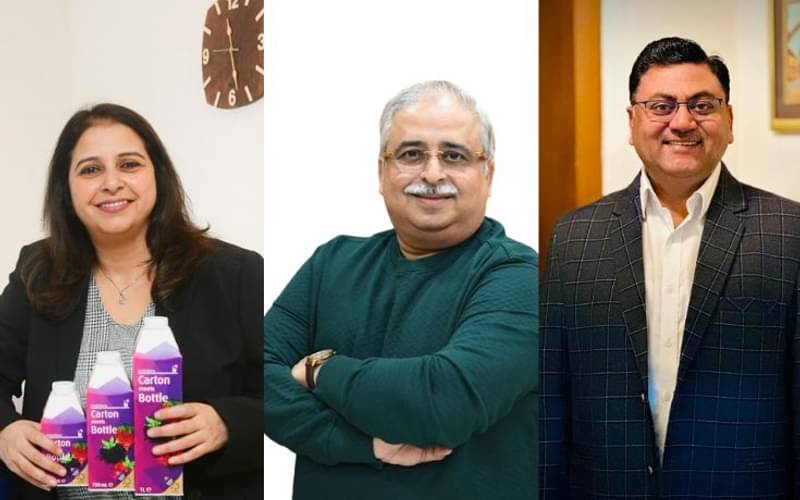Grasping the GST composition: Vandana Tandan, Anthony D'souza and Avneesh Bansal
With the introduction of the GST Act in 2017, few businesses continue to face challenges in terms of filing the tax returns, hiring a chartered accountant, and so on. Abhay Avadhani of WhatPackaging? talks to Vandana Tandan of SIG, Anthony D’souza of Mespack and Avneesh Bansal of Parksons Packaging to find out more…
20 Mar 2024 | By Abhay Avadhani
Recapping what is happening about the GST composition scheme: The composition scheme states that there is less input tax credit from the vendor’s, and the supplier’s end. One of the issues faced by SMEs was that they did not have enough bandwidth to hire chartered accountants and would also have to face heavy compliances from the GST.
Hence, a GST composition scheme came into force stating that businesses providing services can claim input tax credit or pay a lower tax flat of 1% to 6%. The packaging industry is keen to respond to this conundrum and highlight how this will benefit the packaging fraternity.
Vandana Tandan, head of markets India and Bangladesh, SIG Combibloc, shares with us, “Calculating the GST in itself is complex. The rules and laws undergo amendments annually, requiring technical expertise in the field to understand them. For SME and MSMEs, it is an additional expense to get the resources to comply with them, putting an additional burden on their finances. The only way to deal with this is to outsource the resources.”
To meet the GST compliance, SIG has appointed a dedicated tax manager specialising in
handling GST-related queries.
Tandan believes that the GST acts and rules are dynamic, undergoing annual amendments that demand in-depth and technical expertise in the field. She says, “Filing accurate GST returns is crucial, requiring a professional who is well-versed in the subject matter.” “Our suggestion would be to seek assistance from a specialised firm or professional to ensure compliance and mitigate risks effectively,” she adds.
Anthony D’souza, managing director, Mespack shares, “SME / MSME businesses do have challenges in coping up with the GST compliance if they try to do it themselves, hence many use their CAs or consultants to abide by required compliance.”
He says that consultants are the easiest options but they too charge a lot when there are grievances to attend too. Hence, he advises that these companies should train their accountants to be educated in the GST compliance that would help them to cope at their best with not much cost involved.
Talking about how the industry can cope with this, D’souza says, “In house use of resources by all, if many of our members need assistance then the association can look at training of GST compliance through some experts in this field.”
“GST if understood well is easy to comply with, hence train your people to handle it the best, when you comply with it well then you will never have any challenges at all,” D’souza adds.
Avneesh Bansal, head of marketing and new business development, Parksons Packaging, responds. He says, “SME packaging companies source raw materials from big and small suppliers. Some of these suppliers are even retailers due to the small quantity requirement of inputs. So GST compliance is difficult especially to avail input credit.” He backs the composite scheme as a good alternate mechanism.
Bansal points out that most of the MSMEs have a CA firm. “For entrepreneurs who are doing self bookkeeping can get services from account software services provider companies. A GST expert can be appointed by the associations to help on industry specific questions,” he adds.
He explains how a composite scheme is a simplified option. There is no input credit. “The taxpayer just needs to file a quarterly return with a 6% rate (3% CGST and 3% SGST). And at the end of the year, one GST4 return,” Bansal says.
He believes the government is working actively to improve the ease of doing business by leveraging digital technologies. Upon asking for a suggestion for the government, Bansal replies, “These schemes also help to widen the tax net and get businesses into the formal economy. My suggestion to MSME entrepreneurs is to be early adopters of technology and create digital enabled Enterprises.”
The packaging industry is looking ready with the GST composition scheme, and WhatPackaging? shares more of what the industry has to say. If you want to share your thoughts over the same, drop an eMail to abhay.avadhani@haymarketsac.com.


